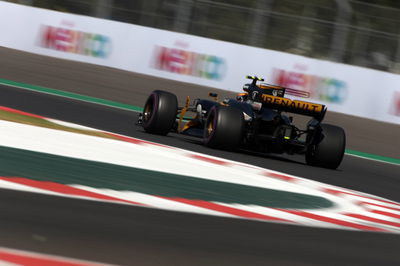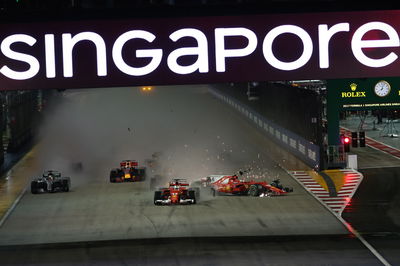Renault takes ‘fast and strong measures’ to avoid repeat engine failures
Renault Sport managing director Cyril Abiteboul says the number of engine failures the French manufacturer suffered during the Mexican Grand Prix weekend was “unacceptable” and key changes have been made to avoid a similar fate in Brazil.

Renault Sport managing director Cyril Abiteboul says the number of engine failures the French manufacturer suffered during the Mexican Grand Prix weekend was “unacceptable” and key changes have been made to avoid a similar fate in Brazil.
While the Toro Rosso pair of Pierre Gasly and Brendon Hartley were the only Renault-powered drivers to be hit by reliability woes during practice and qualifying at the Autodromo Hermanos Rodriguez, it turned into a disastrous race as Hartley, Daniel Ricciardo and Nico Hulkenberg all failed to finish with engine issues while Carlos Sainz Jr was forced to retire early as a precaution.
Despite the engine reliability issues taking out four of the six Reanult-powered cars from the Mexican GP, Max Verstappen did go on to win the race by running in the cleaner and cooler air to reduce the stress on the turbo in the higher altitude.
While Abiteboul accepts Renault got the balance between performance and reliability wrong, Verstappen’s victory points to further gains from the French manufacturer’s engine development during the year and says changes have been made to avoid a similar situation in Brazil next weekend.
“The Mexican Grand Prix was particularly difficult with a number of unacceptable mechanical problems and we have the clear intention to take fast and strong measures,” Abiteboul said. “The particularities of Mexico accentuated our weaknesses, but clearly we have not been successful in balancing performance and reliability.
“The performance of our engine has progressed a lot this year as the results in the race attest; we now have to find reliability, for both us and our customers, even if Max won magnificently in Mexico.”
Renault’s technical director Nick Chester is confident the turbo issue will be easier to prevent due to the altitude difference between Mexico City and Sao Paulo with the added measures installed against the problem.
“Despite the reasonably high altitude of Sao Paulo, Mexico City trounces it,” Chester said. “Instead of being 25% down on air density as we are in Mexico, we’ll be down only by around 10% which is much, much easier to manage.
“We’re not expecting too many dramas to control temperatures and there will be a range of set-ups for us to try out. It’s not a full downforce track like Monaco or Hungary but there are a range of aero set-ups for us to try.”











